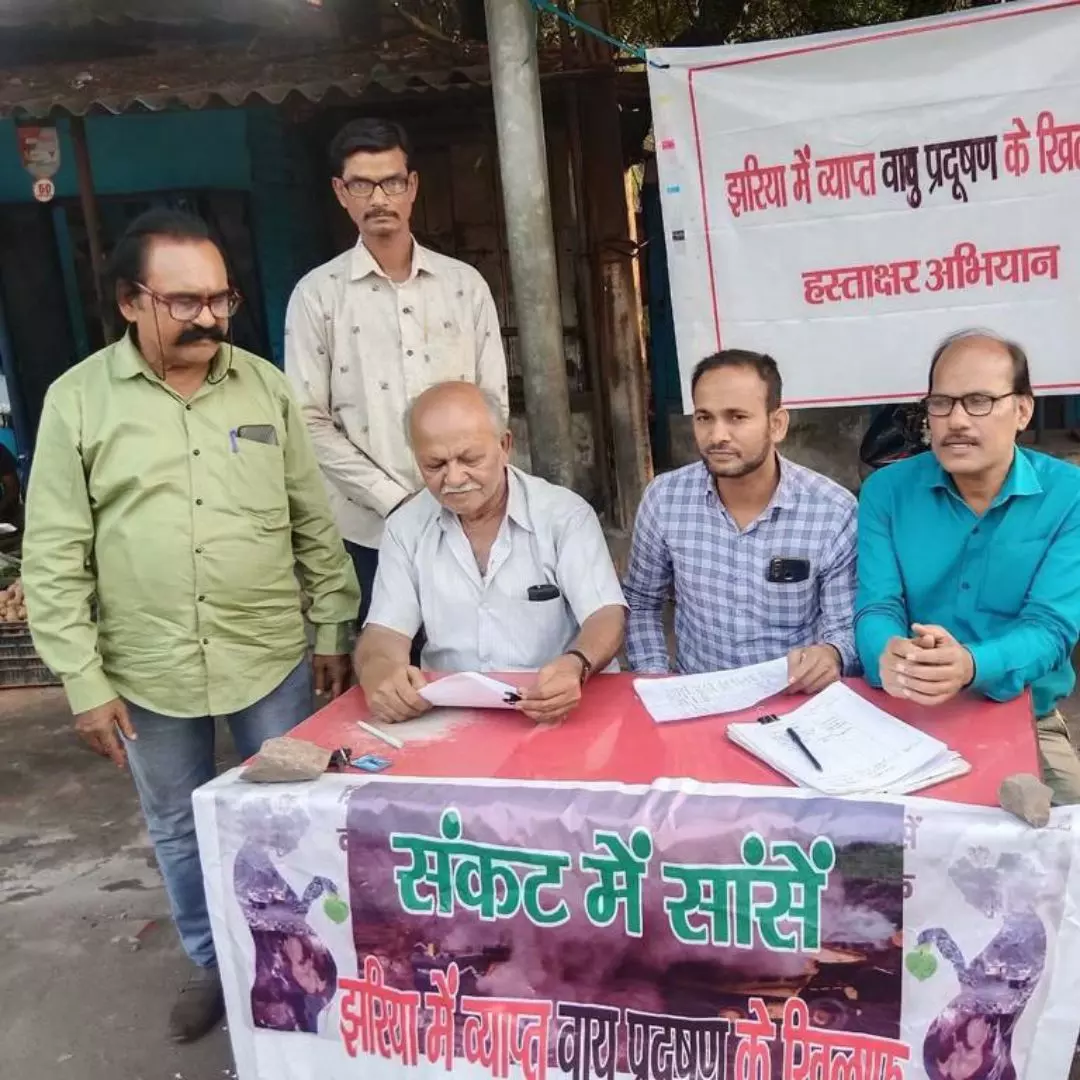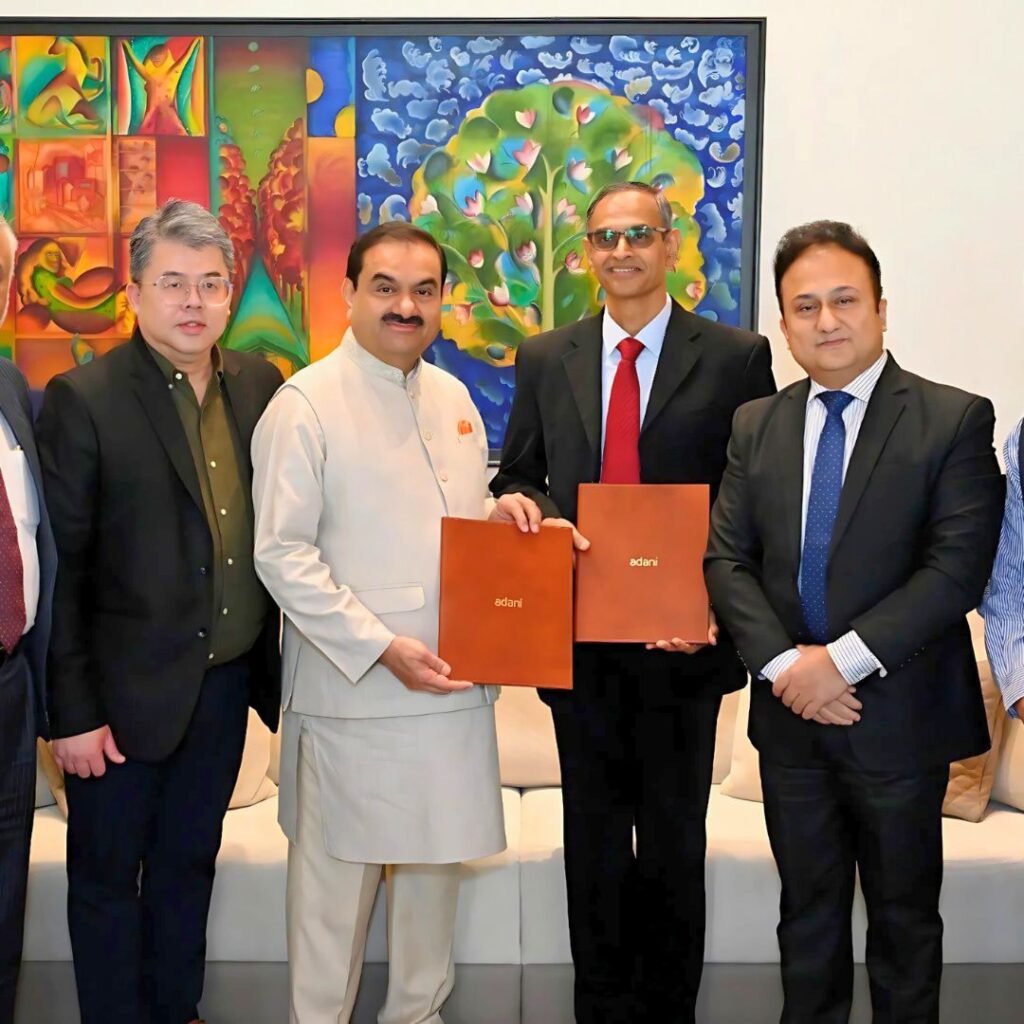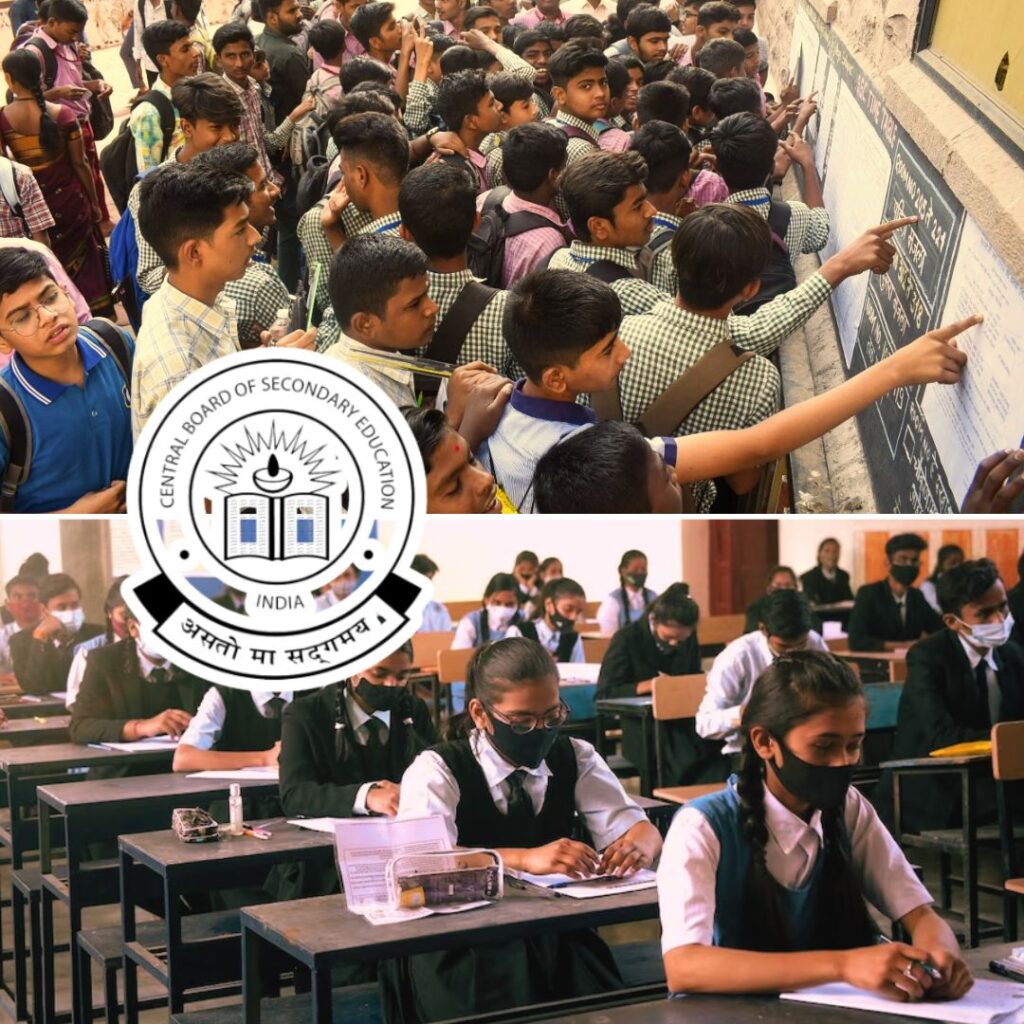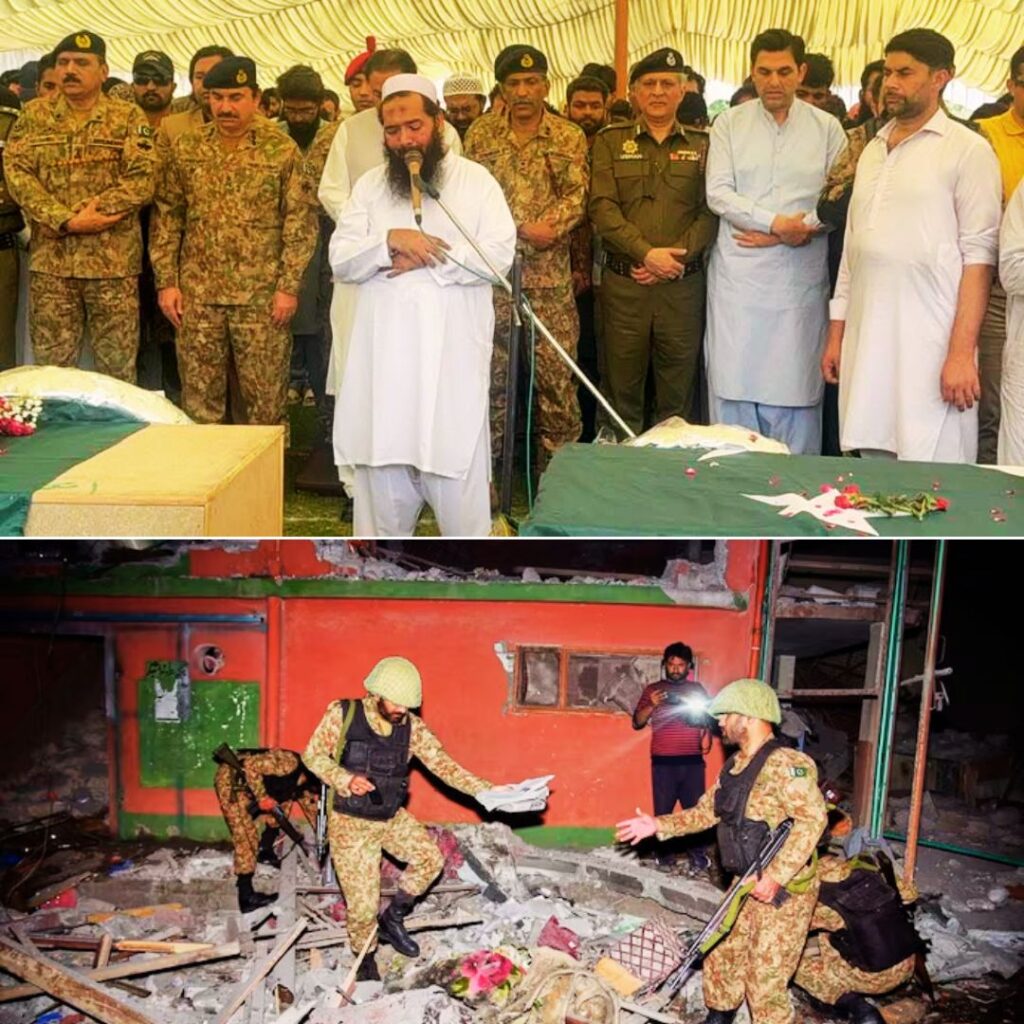In the heart of Dhanbad district, nestled within the sprawling Jharia Coal Industry, Dilip Chakraborty, the Central Secretary of the Bihar Colliery Workers Union CITU, finds himself at the forefront of a battle against environmental degradation and unjust treatment. For years, the open mines in the region have been a source of pollution, with outsourcing companies operating under BCCL contributing to the degradation of the environment.
Despite regulations from the Directorate General of Mines Safety (DGMS) and guidelines from the Jharkhand State Pollution Board, the unchecked dumping has led to the widespread dispersion of coal dust, affecting the health and well-being of the local population.
Residents of villages near the outsourcing project in Navagarh are encountering difficulties. The rural population surrounding the outsourcing project in Fularitand, under the Barora area, includes Ganeshpur, Mandara, Barora Basti, Phularitand, and Asha Kothi have to face the consequences of pollution. The operation of the outsourcing project leads to the creation of substantial dust through activities like blasting and transportation. As a result, a layer of dust accumulates in the homes of the people living in these areas every day.
Dilip Chakraborty, not content to stand idly by, initiated a signature campaign against pollution in the area. Thousands of concerned citizens added their voices to the cause, and the appeal was sent to the President of India. Simultaneously, Chakraborty took a proactive approach by addressing a letter to the General Manager and other senior officers of BCCL, urging them to adhere to pollution control guidelines. In the letter, he implored, “I request you to take necessary steps to stop this type of pollution and follow the guidelines of the Pollution Board.”
Punitive measures faced
In a surprising turn of events, Chakraborty’s activism was met with punitive measures due to the mounting pressure to address pollution concerns. The electricity and water connections were cut off. The newspaper Dainik Jagran reported, “On the orders of General Manager of East Jharia area, Nirjhar Chakraborty, Dhauda in-charge Ramchandra Paswan, Surendra Kumar Singh of Internal Security Department along with CISF jawans arrived to cut the water and electricity connection of the house of BCKU leader Dilip Chakraborty, resident of Bhaura Gourkhunti.” The arbitrary decision to cut off water connections by the BCCL authorities stands in direct contradiction to these constitutional provisions, lamented Dilip, quoting Article 21 of the Indian constitution: “What is Article Twenty-One of the Constitution? It has been said in clear words that no one can be deprived of the right to water.”
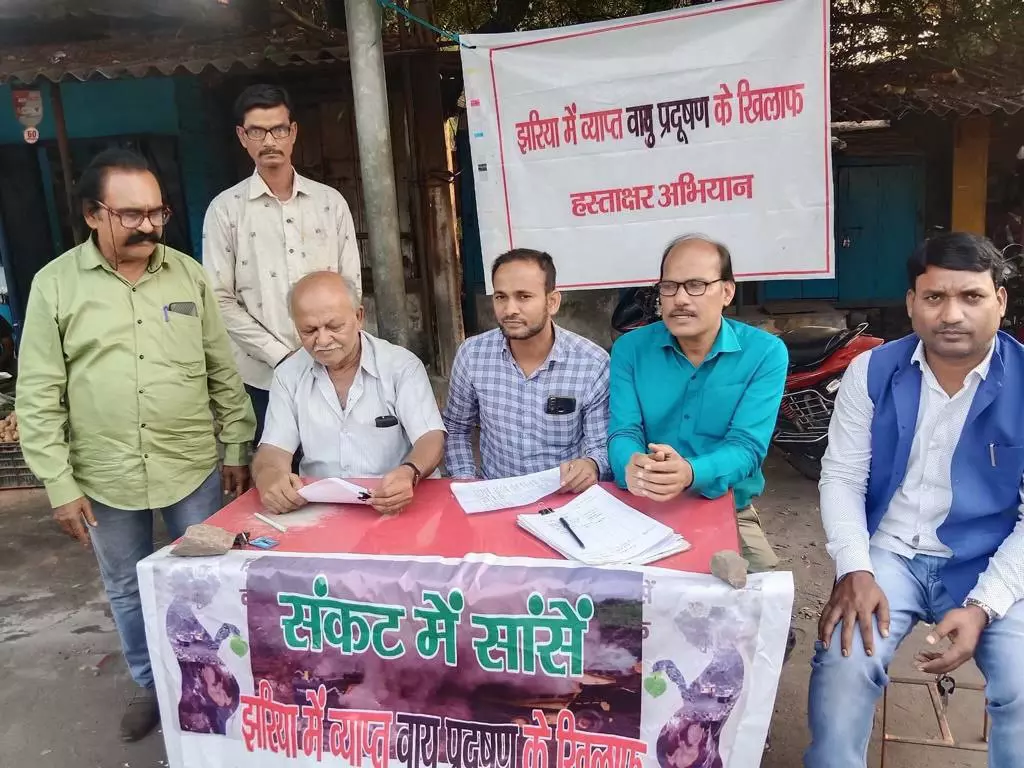
Pollution In Jharia
Dilip’s concerns have strong grounds; Greenpeace India has declared Jharia the most polluted city in the country, according to its third edition of the annual report, Airpocalypse. The air pollution survey conducted by the organization covered 319 cities across India. Shockingly, the average particulate matter (PM) level in Jharia in 2017 was recorded at an alarming 295 micrograms per cubic meter, making it the highest in the entire country.
Dilip Chakraborty’s predicament highlights the challenges faced by activists who champion the cause of the environment. In a world grappling with a growing environmental crisis, it is imperative that the voices of dedicated activists like Dilip Chakraborty be not only heard but amplified. The suppression of such advocates not only stifles crucial calls for justice but also hinders the collective efforts needed to address the urgent environmental challenges we face. It is high time that we respect and heed the warnings from those on the front lines, working tirelessly to secure a sustainable and just future for our planet.
Also Read: Uttarakhand Tunnel Collapse: 41 Workers Rescued After Succesful 17-Day Operation


